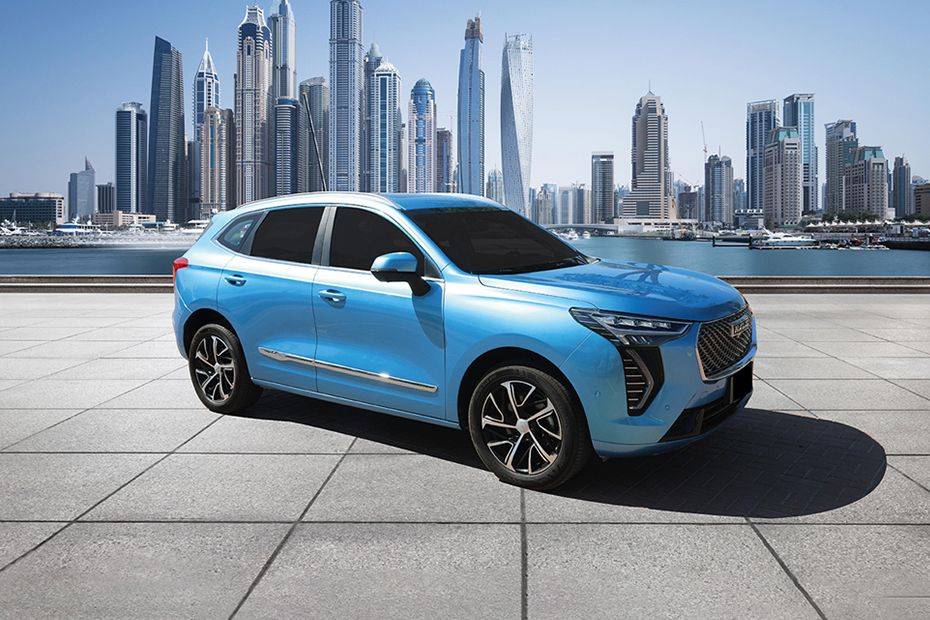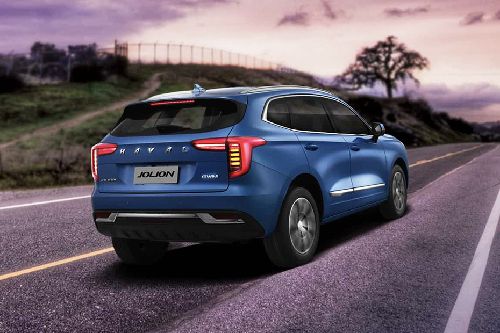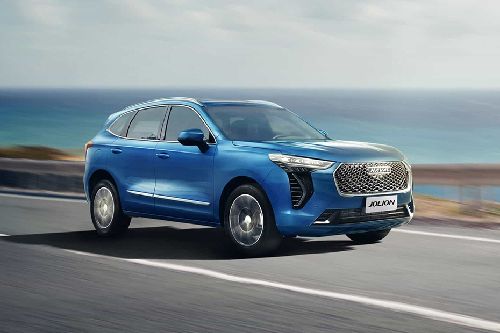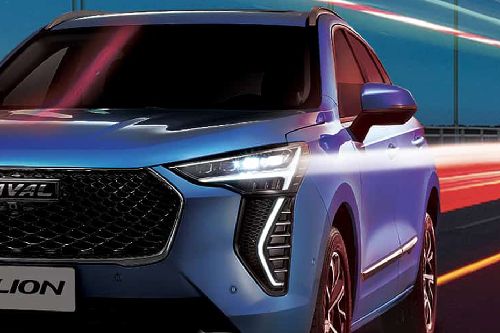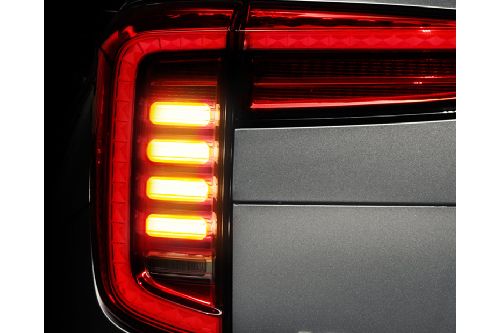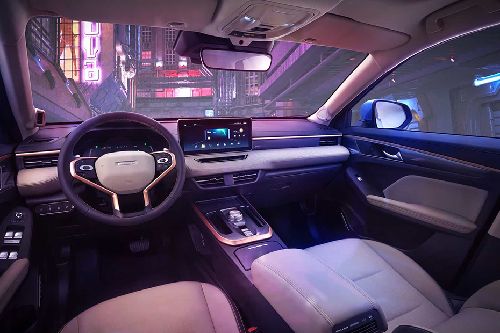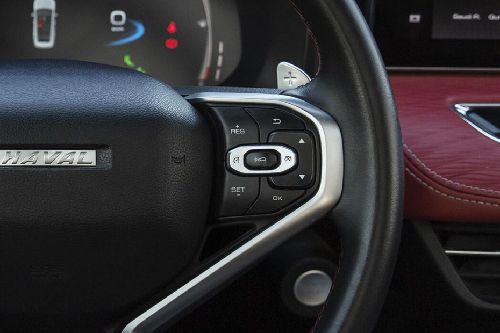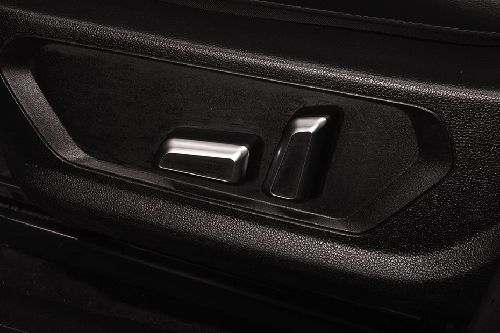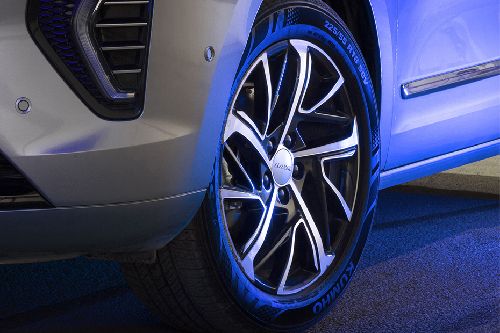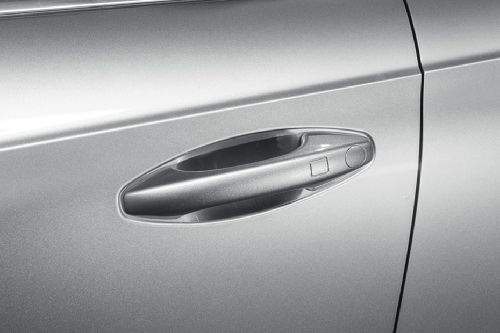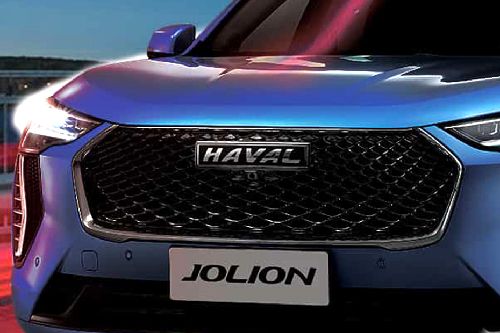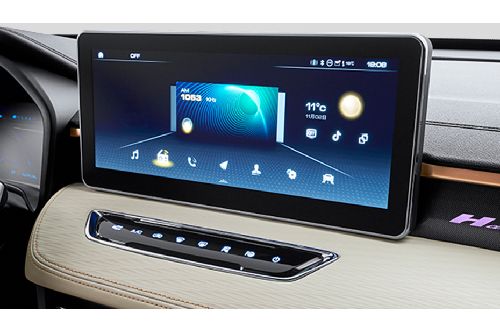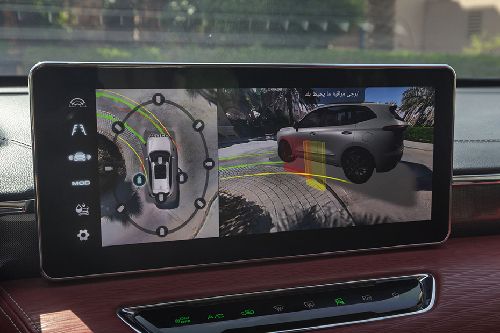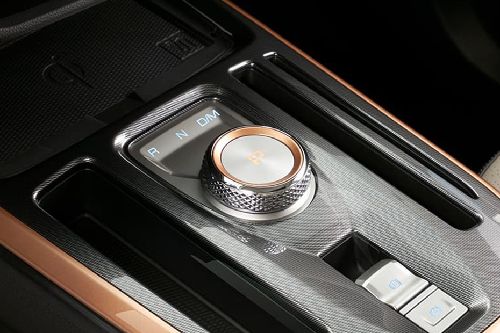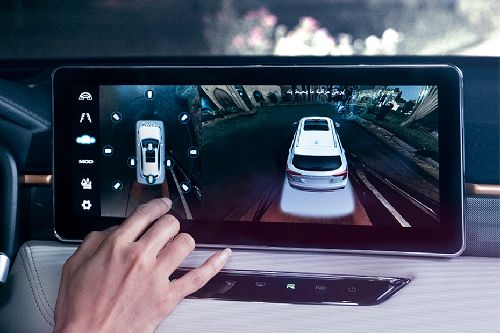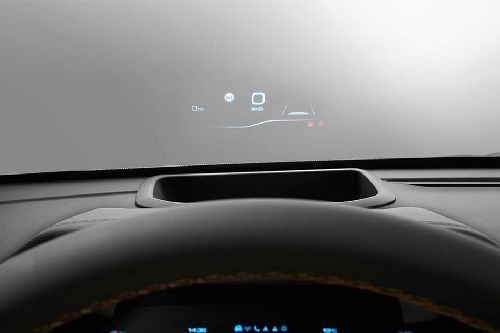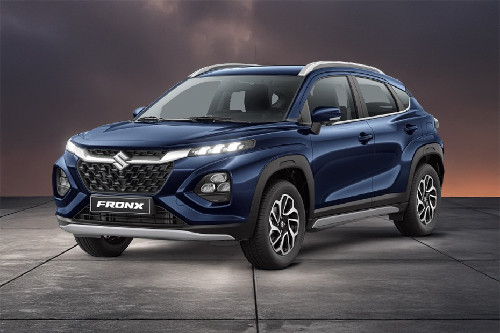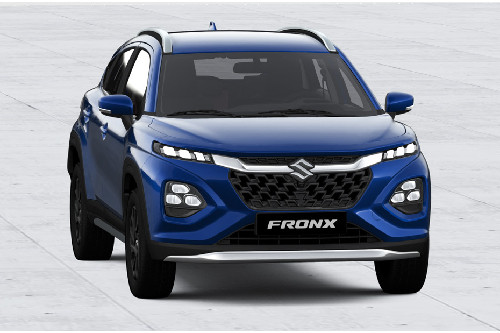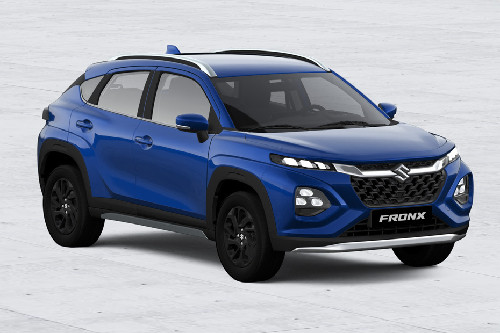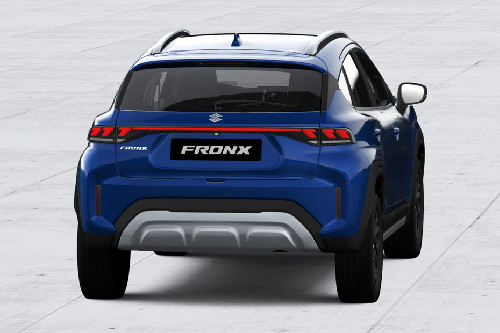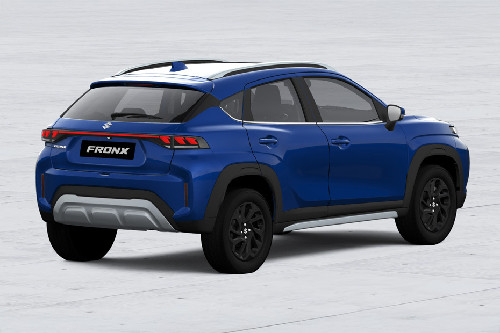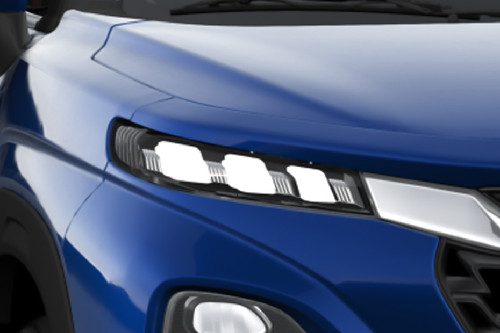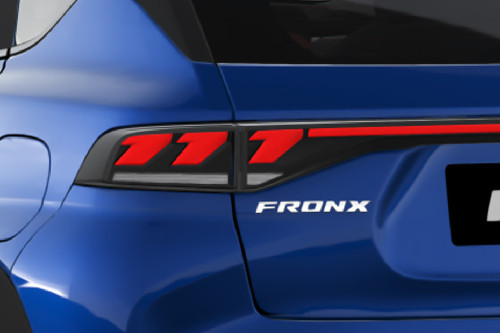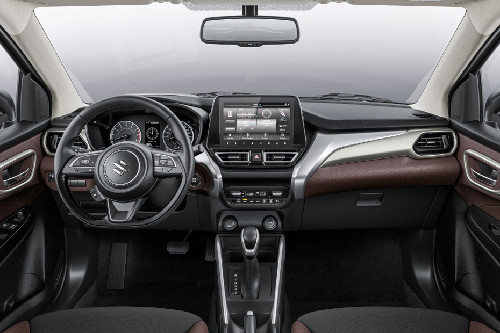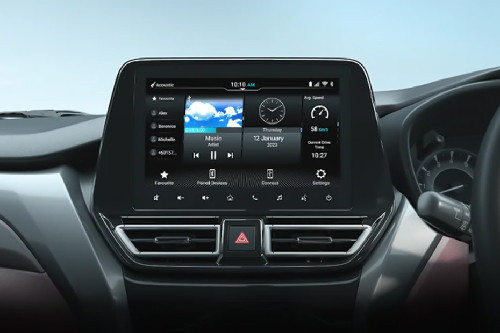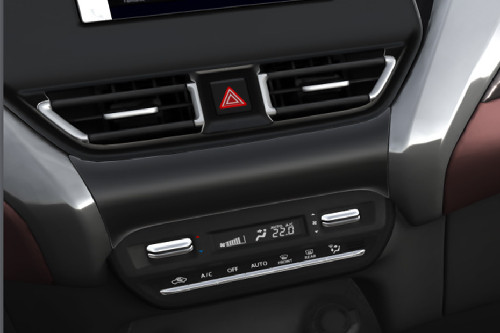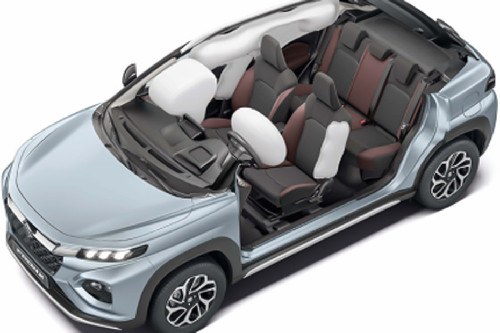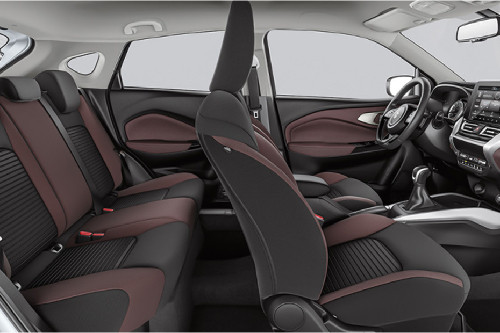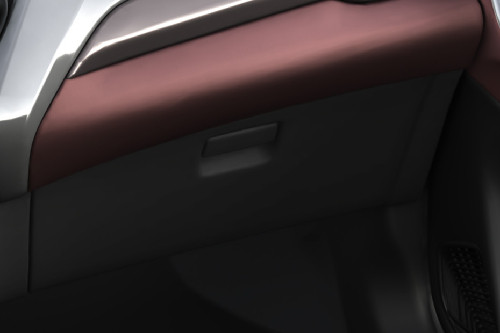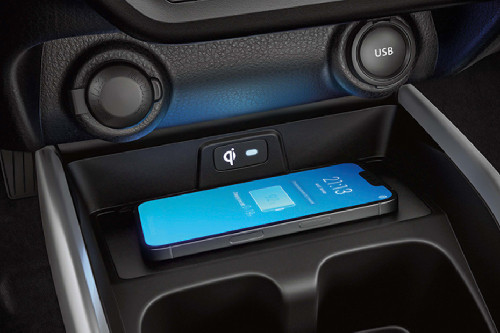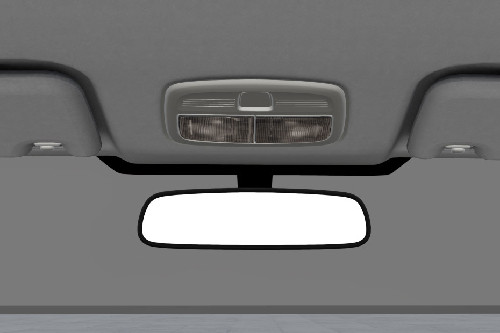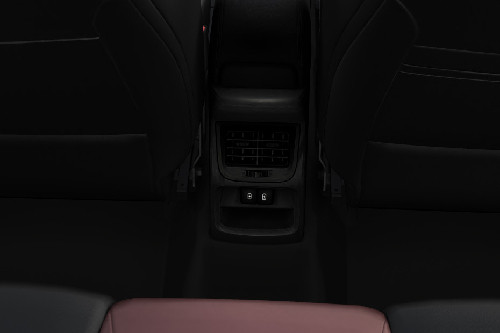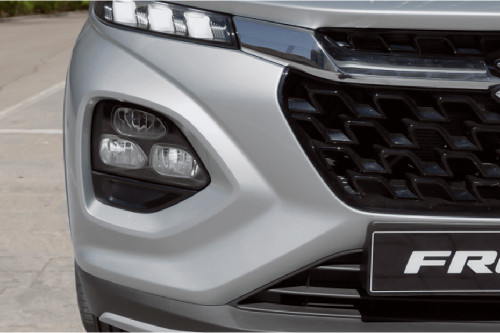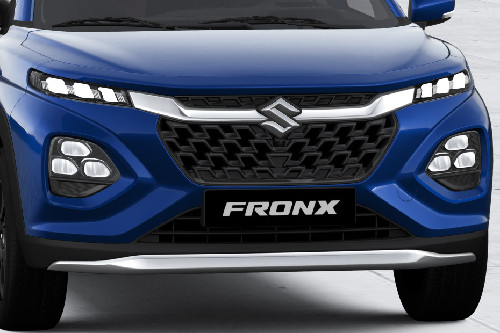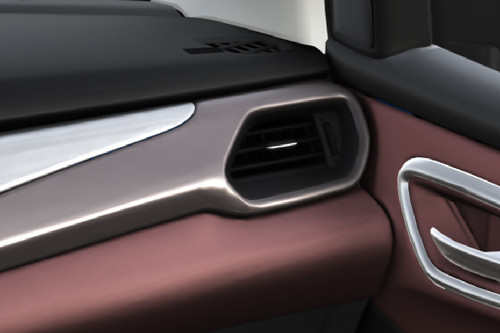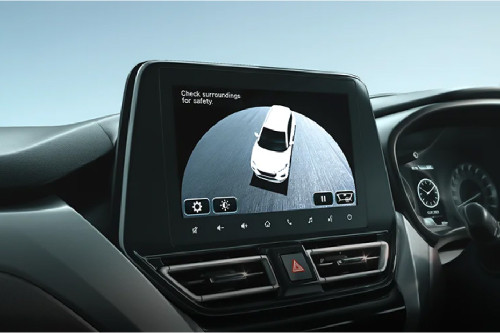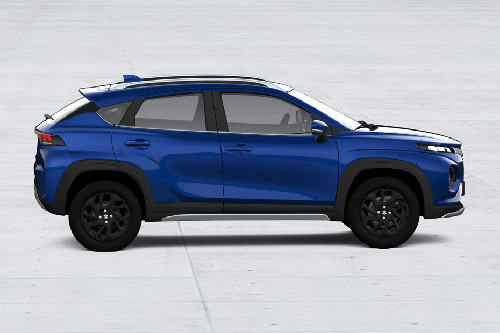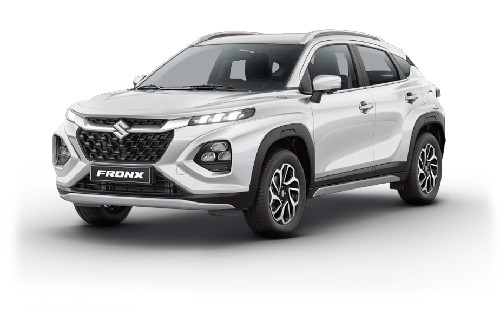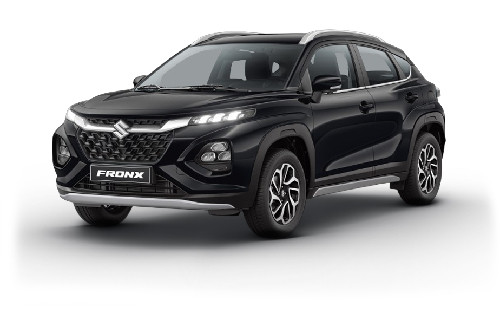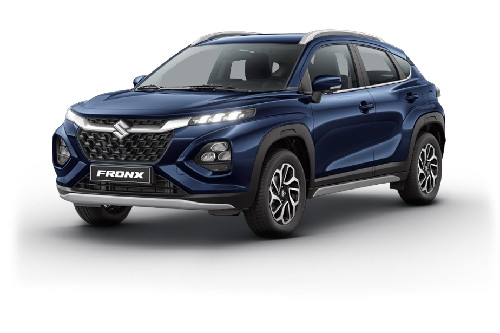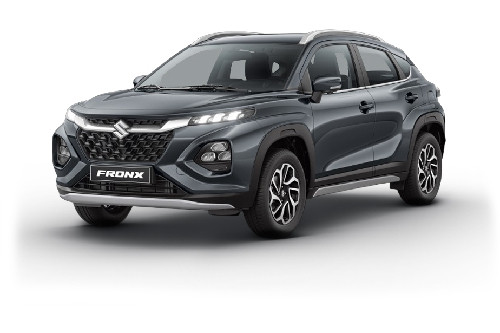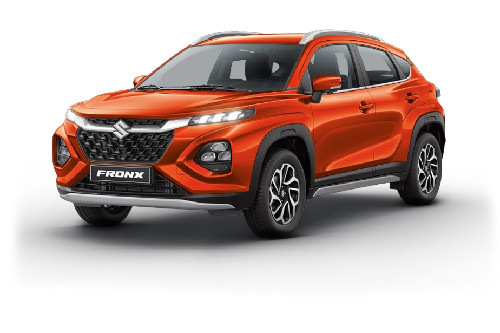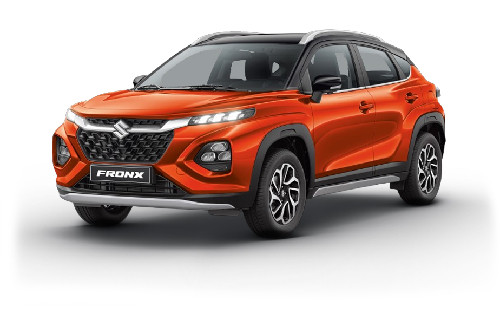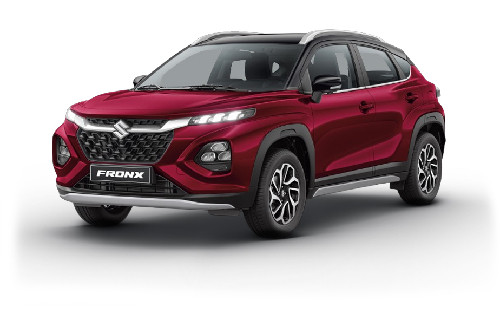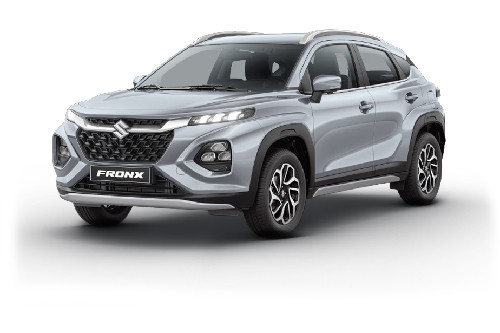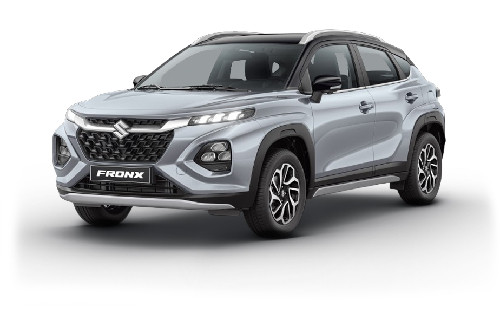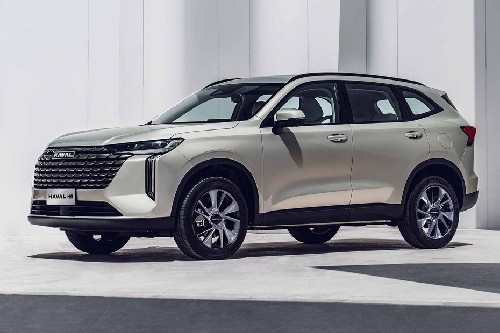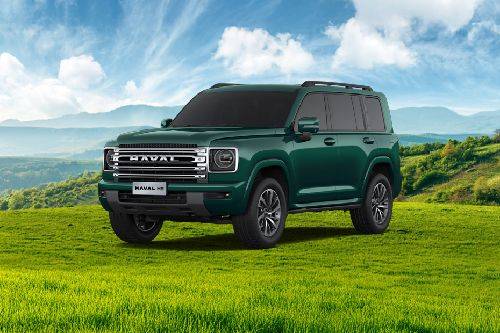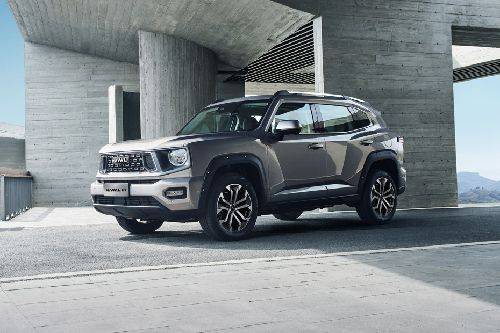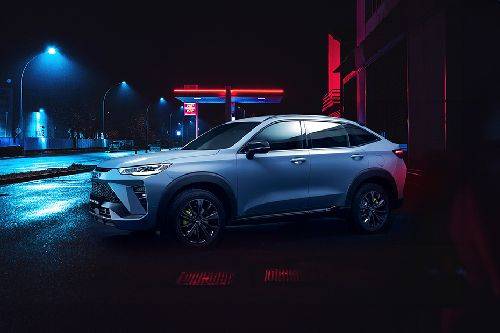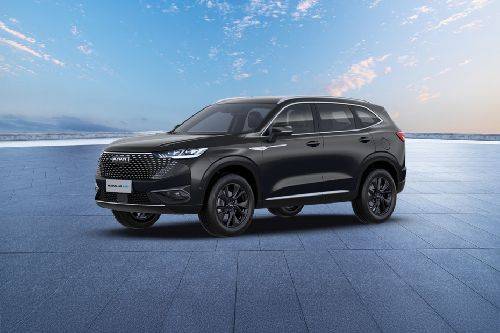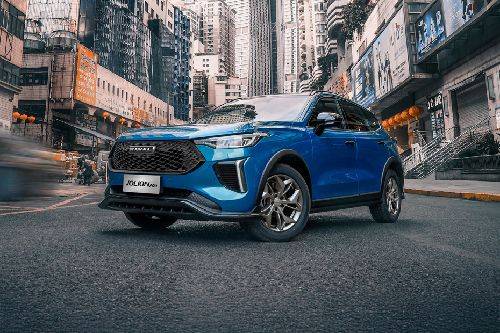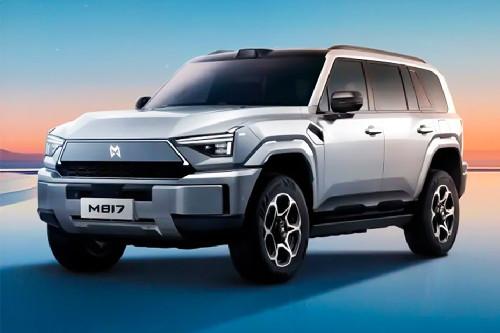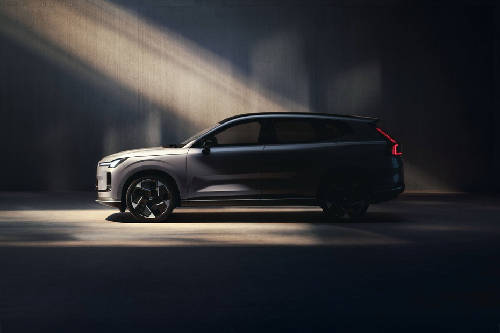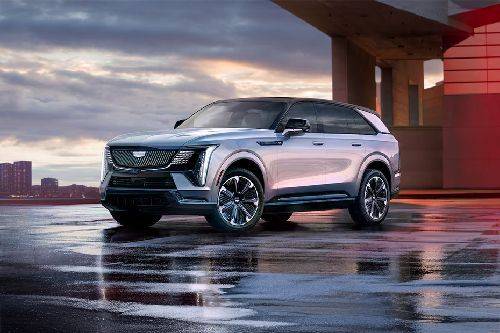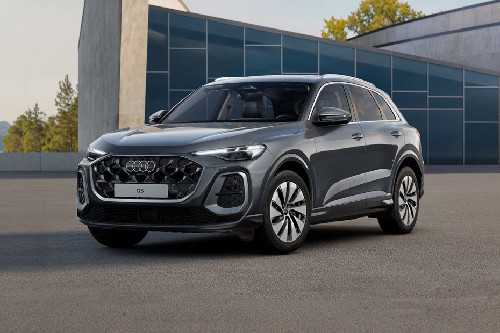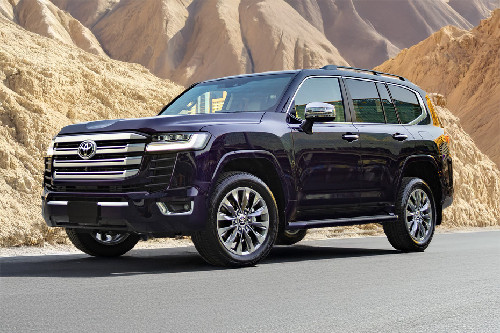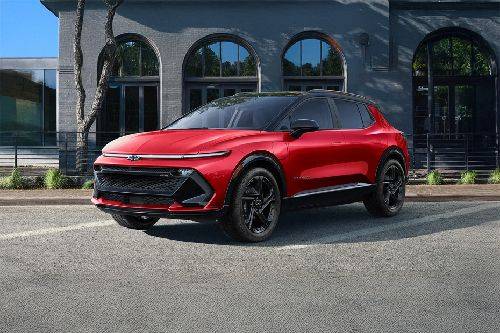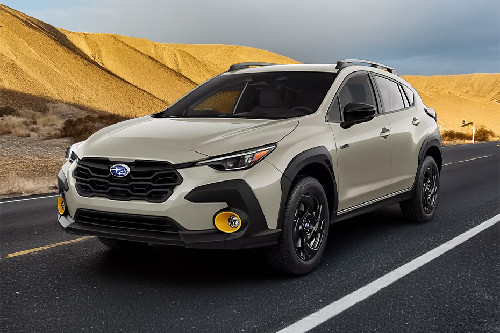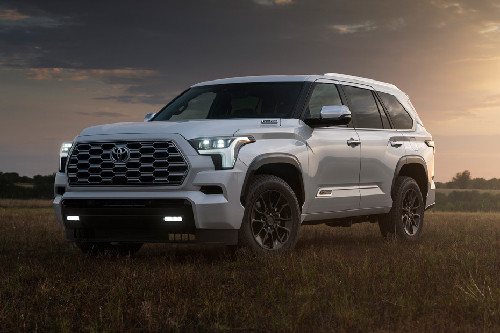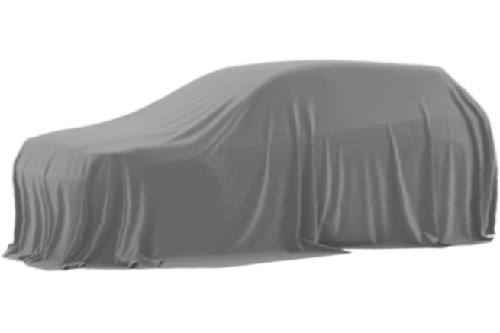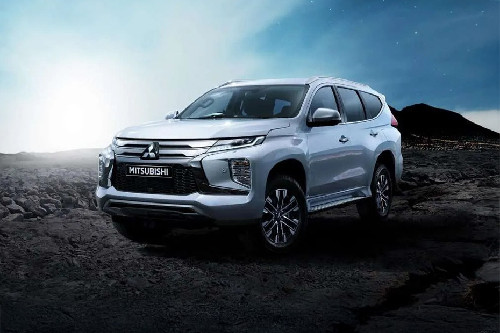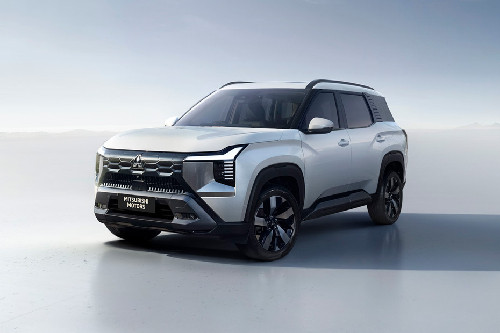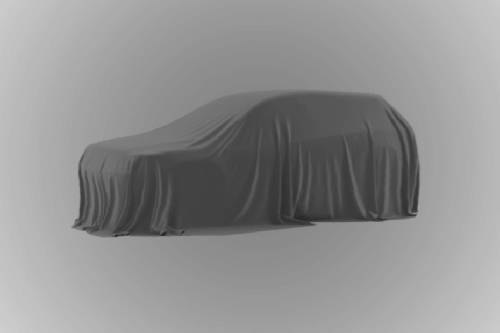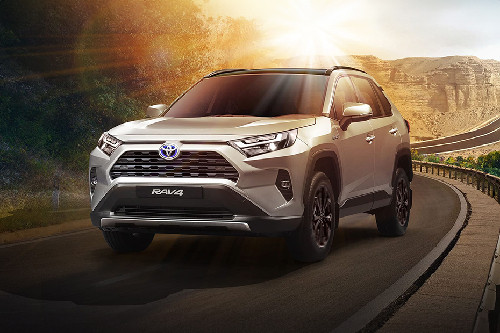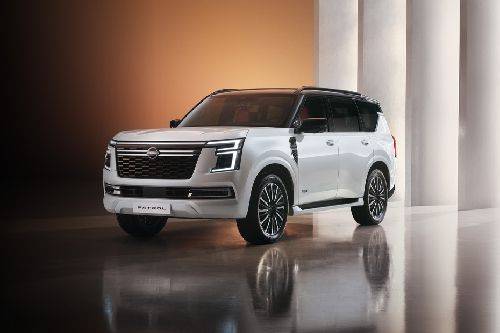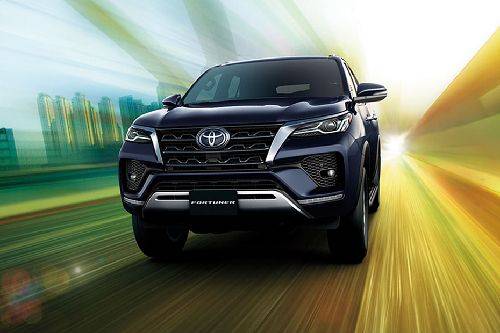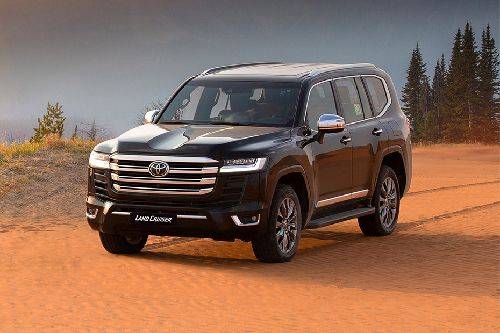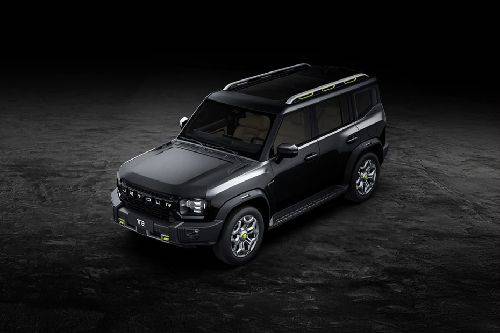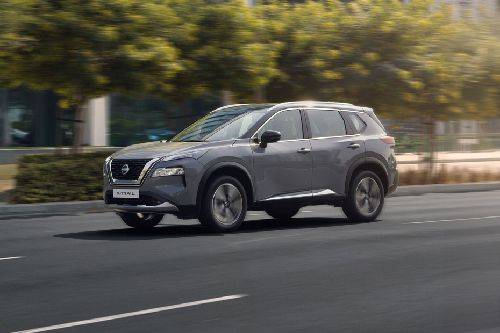Comparison: Haval Jolion vs Suzuki Fronx

Saudi Arabia : Historically, Japanese cars have been well-liked in the Middle East, primarily helped by their long-term reliability and affordability. These are understandably important metrics for consumers who view cars mostly as a form of personal mobility. Back in the day, frugal sedans such as the Nissan Sunny and Toyota Corolla fulfilled this role justly.
KEY TAKEAWAYS
What is the price of Haval Jolion in Saudi Arabia?
The Haval Jolion is priced between SAR 71,415 and SAR 94,185 in Saudi Arabia.How much is the Suzuki Fronx in Saudi Arabia?
The Suzuki Fronx costs from SAR 69,000 to SAR 74,750 in Saudi Arabia.What is the mileage of Suzuki Fronx in KSA?
The Suzuki Fronx delivers a mileage of 21.1 kmpl (4.7 L/100 km).The consumer of today, however, often prefers small SUVs to sedans or hatchbacks. Apart from the well-established Japanese brands, car buyers in Saudi Arabia also have an abundance of Chinese offerings on their radar. This is where we have the likes of the Haval Jolion coming into play. While its competitors in KSA are numerous, today we’ll pit it against the Suzuki Fronx.
Price Comparison
- The Haval Jolion is retailed exclusively by the Automotive Distribution & Marketing Company in Saudi Arabia. Based on availability, it’s often offered in three separate trims: Basic, Active Plus, and Premium. The price of the Jolion Basic is SAR 71,415, with the mid-spec Jolion Active Plus costing SAR 83,835, and the fully-loaded Jolion Premium starting at a lofty SAR 94,185.

- In comparison, the entry-level Suzuki Fronx GL costs only SAR 69,000. The mid-tier Fronx GL+ costs SAR 71,530, while the Fronx GLX trim is priced at SAR 74,750. Eagle-eyed readers would have noticed how the Fronx is way more affordable than the Jolion – we’ll explain why that’s the case (but not entirely). The official distributor of Suzuki cars in Saudi Arabia is Najeeb Auto.
As far as the manufacturer’s warranty is concerned, the Suzuki Fronx is covered for a period of 3 years or 100,000 kilometres. Meanwhile, buyers of the Haval Jolion can expect a warranty coverage of at least 5 years or 100,000 kilometres (whichever comes first). Great Wall Motors (GWM), the parent company of Haval, also offers an extended warranty of 6 years or 200,000 kilometres.
Dimensions Comparison
One of the reasons why the Fronx is more affordable than the Jolion has to do with its physical size. The Suzuki is noticeably smaller than the Haval, slotting into the subcompact segment compared to the latter’s compact class. This makes driving the Fronx in the city much easier, especially if your commute involves frequent manoeuvring down narrow lanes.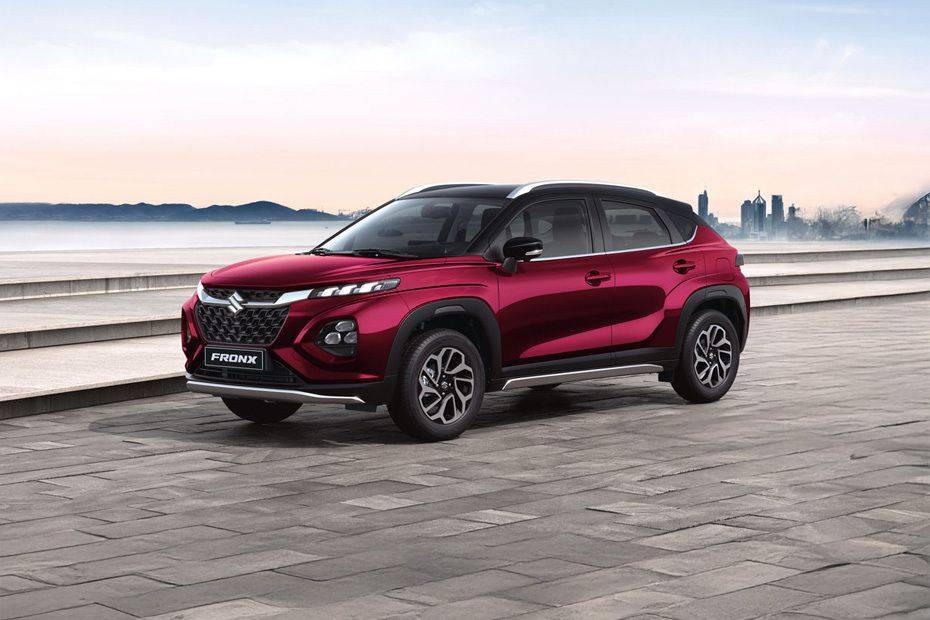
|
Dimensions |
Haval Jolion |
Suzuki Fronx |
|
Length |
4,472 mm |
3,995 mm |
|
Width |
1,841 mm |
1,765 mm |
|
Height |
1,574 mm |
1,550 mm |
|
Wheelbase |
2,700 mm |
2,520 mm |
|
Weight |
1,430 kg (appx.) |
1,065 kg |
|
Fuel capacity |
55 litres |
37 litres |
|
Boot capacity |
430 litres |
304 litres |
|
Wheel size |
18 inches |
16 inches |
Not only is the Haval Jolion larger than the Suzuki Fronx, its form factor better resembles a conventional SUV. The emphasis on straight lines and squarer edges is clear, whilst its relatively upright stance and broad grille make the Jolion’s styling palatable for a wider audience. Some highlights here include multi-beam LED headlights flanking a chrome-garnished grille, dual-tone alloys, chrome window surrounds, and T-shaped LED taillights.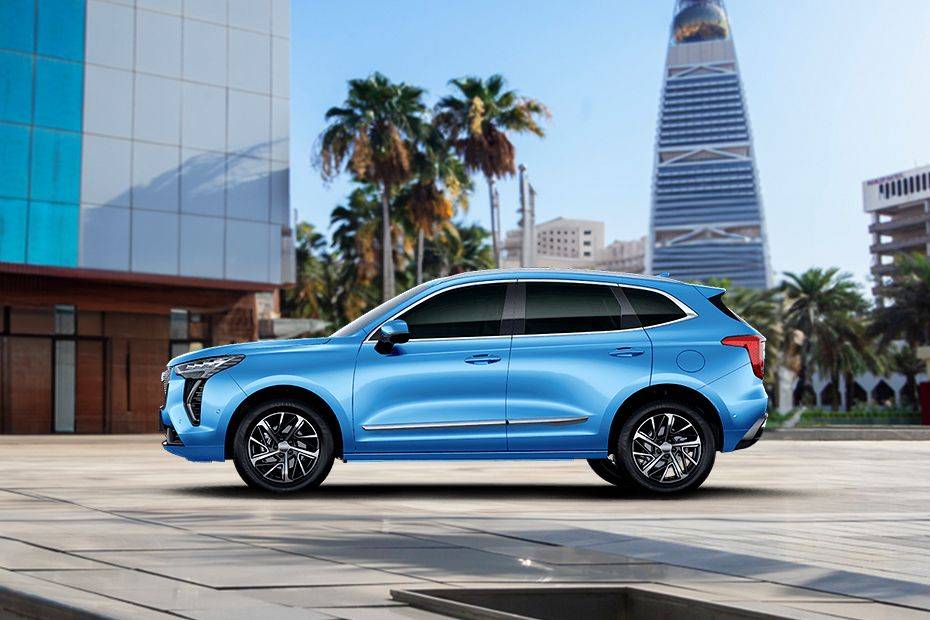
Many Chinese automakers, over the years, have revered and been inspired by western design concepts. In this case, staring at the side profile of the Jolion may remind keen viewers of a Volvo XC60. Compared to the Fronx, the Jolion not only looks more substantial but also boasts a bigger boot and a longer wheelbase. The latter results in more room for rear-seat occupants without compromising design aesthetics.
The coupe-like roofline is a major design feature of the Suzuki Fronx which, alongside its dual-tone colour choices, makes it appear sporty. There are sharp creases on the body panels that are accompanied by aggressive plastic cladding underneath. The sharply raked rear windscreen of the Fronx leads to a full-width LED strip and a busy bumper with a fake diffuser. Obviously, the Fronx’s cabin is narrower and feels more confined than the Jolion.
Drivetrain and Performance Comparison
Repeating what we saw above, there are distinct differences in the performance aspects of these two cars. Even though the Jolion doesn’t directly compete with the Fronx, their engine capacities and FWD architectures are mostly comparable. What are the key differences then? Let’s find out.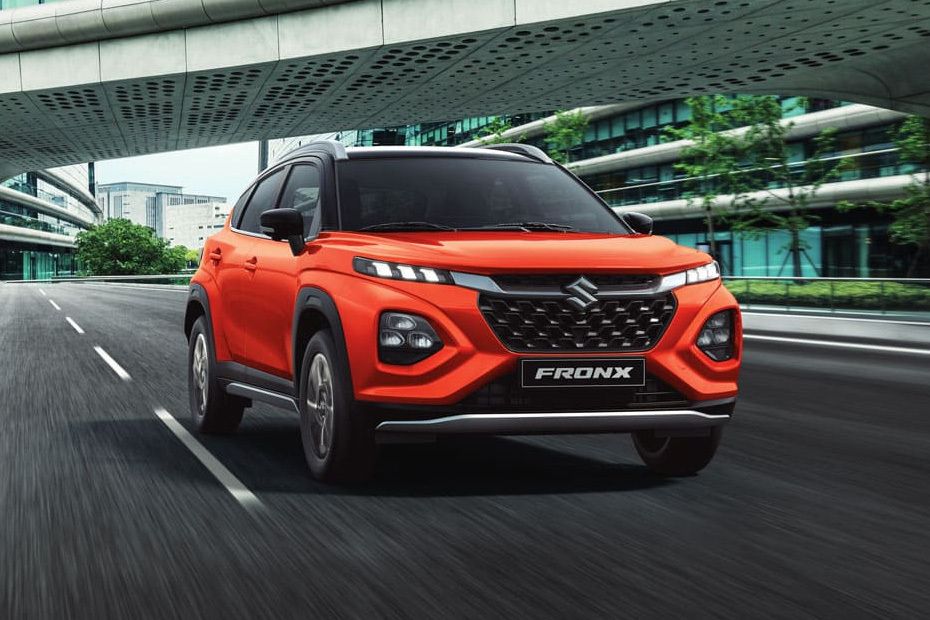
|
Specs |
Haval Jolion |
Suzuki Fronx |
|
Engine |
1.5-litre turbocharged four-cylinder petrol |
1.5-litre naturally-aspirated four-cylinder petrol |
|
Gearbox |
7-speed DCT |
6-speed automatic |
|
Drive System |
FWD |
FWD |
|
Power |
147 hp |
102 hp |
|
Torque |
220 Nm |
137 Nm |
|
Mileage |
12.3 kmpl (8.1 L/100 km) |
21.1 kmpl (4.7 L/100 km) |
|
Top Speed |
185 kmph |
165 kmph |
|
0-100 kmph |
10.5 seconds (appx.) |
12.5 seconds |
From the above table, it’s easy to surmise that the Haval Jolion offers more performance on all but one count – fuel economy. Offering around 12 kmpl in a mixed cycle, the Jolion is easily eclipsed by the Fronx, which manages over 21 kmpl. Those who care about extracting every ounce of energy from each drop of petrol, the Suzuki Fronx will feel rewarding.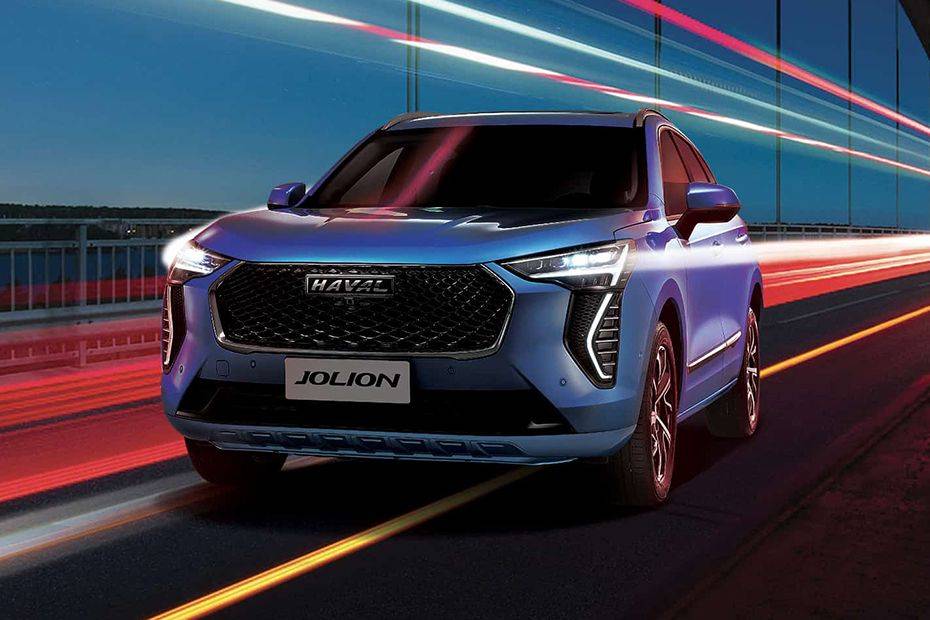
Such amazing fuel economy has a cost though, and that’s performance. The Fronx takes about two seconds more to reach 100 kmph from a standstill, and acceleration feels lethargic at highway speeds. Even when you’re pottering around town, its performance feels just about adequate. While it’s significantly heavier than the Fronx, the Jolion also has more power (torque, actually) on offer.
The sense of performance in the Haval is further helped by its dual-clutch gearbox which, whilst not typical DCT-level rapid, responds faster than the Suzuki’s torque-converter. The Jolion’s suspension feels more plush than the Fronx’s, though both do a good job of absorbing minor road imperfections. Where the Fronx loses out is NVH – there’s definitely more road and wind noise (plus vibrations) in the cabin of the Suzuki.
On the other hand, the Suzuki Fronx feels more adept handling stop-go traffic when you’re crawling in traffic. Its 6-speed automatic gearbox is also smoother and generally better in such scenarios, though its responsiveness drops as the speed rises. Overall, the Haval Jolion feels more mature from behind the wheel.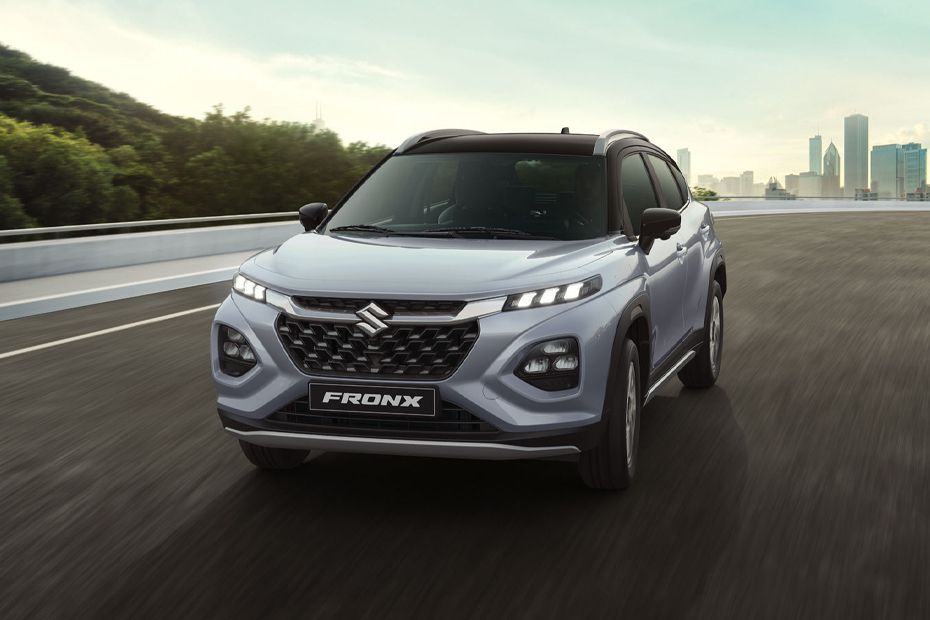
Features Comparison
Given the price delta, it’s not shocking to learn that the Haval Jolion comes with more features (overall) than the Suzuki Fronx. We’ll be looking at the top variants of the two cars so as to better showcase the differences between them.
|
Exterior Features |
Haval Jolion Premium |
Suzuki Fronx GLX |
|
LED headlights |
Yes (automatic) |
Yes |
|
LED DRLs |
Yes |
Yes |
|
LED taillights |
Yes |
Yes |
|
Powered ORVMs |
Yes (power-folding) |
Yes (power-folding) |
|
Keyless entry |
Yes (w/ auto-unlock) |
Yes |
|
Roof rails |
Yes |
Yes |
|
Rear spoiler |
Yes |
Yes |
Let’s start with the Suzuki Fronx first. The interior of the Fronx has a fairly modern design and encompasses features that are used almost daily by most consumers. The infotainment unit works well and is directly in the driver’s line of sight, and while it lacks fancy graphics or animations, it’s responsive and easy to operate.
The two-tone interior of the Fronx livens up the space a little, but this cabin is designed to appear sporty even if a little cramped. The material quality is expectedly cheap in most places but durable. The leather-wrapped steering feels good, while the front seats provide decent comfort. However, the rear isn’t as spacious and lacks headroom – it’s also only best for two adults.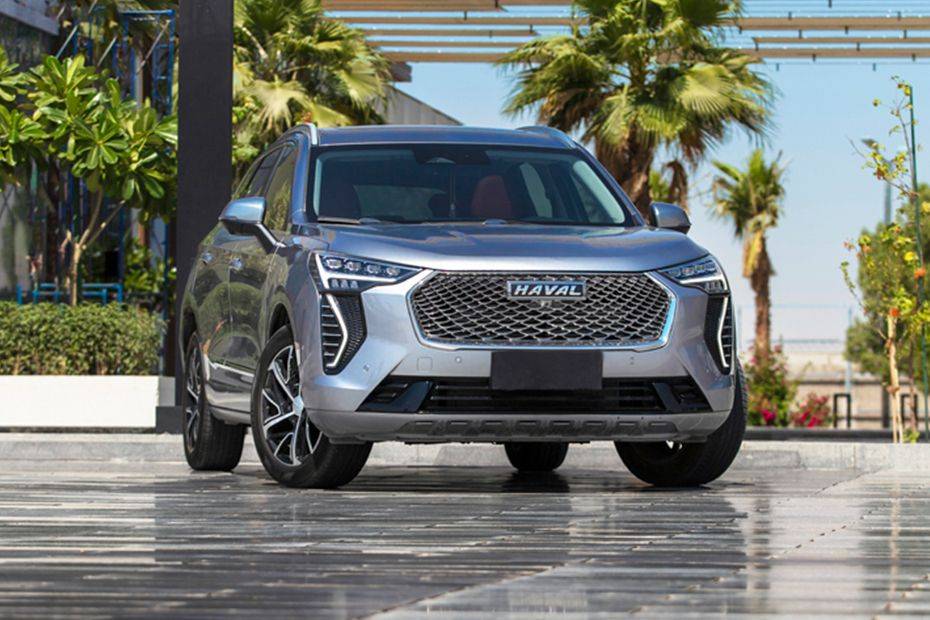
In sharp contrast to the Fronx, the interior of the Haval Jolion offers more space and far better-quality materials. avThanks to its higher roof and overall tall stance, it’s easy to get in and out of the Jolion. There are softer materials and better seats that make this a more comfortable space to be in. The larger windows also keep this cabin feeling light and airy.
Because of its larger size, the Jolion comes with more storage cubbies as well. Its touchscreen is in line of sight too, but the general design of this interior is much more modern than the Fronx’s. Utility plays a key role in the Suzuki cockpit and it shows – simply strap your seatbelt and drive away – it doesn’t get simpler than that.
|
Interior Technologies |
Haval Jolion Premium |
Suzuki Fronx GLX |
|
Push-button start |
Yes |
Yes |
|
Paddle shifters |
Yes |
No |
|
Digital driver’s display |
Yes (7-inch) |
No (3.5-inch MID) |
|
Touchscreen infotainment |
Yes (12.3-inch) |
Yes (9-inch) |
|
Wireless charger |
Yes |
Yes |
|
Apple CarPlay & Android Auto |
Yes (Apple CarPlay only) |
Yes |
|
Sound system |
Yes (6-speaker audio) |
Yes (6-speaker audio) |
|
Electric sunroof |
Yes (panoramic) |
No |
|
Drive modes |
Yes (Standard, Sport, Economy, Snow) |
No |
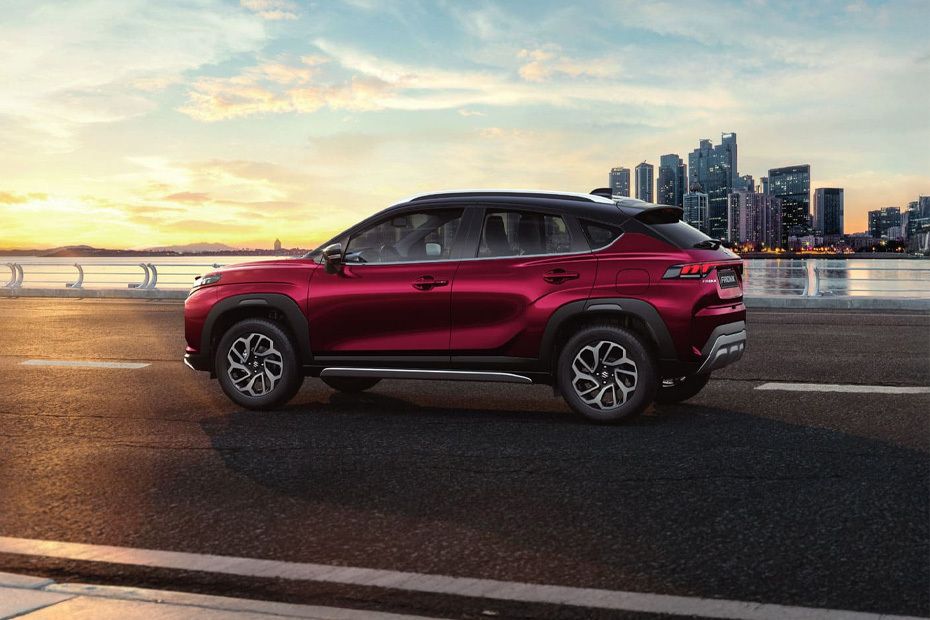
Despite being more expensive, the Haval Jolion only gets Apple CarPlay as standard (that too wired). Where it easily trumps the Fronx is when we glance at the Jolion’s luxury-related features and their implementation. Due to the bigger cabin, these can be used to their fullest potential, which is always difficult to counter.
|
Comfort Offerings |
Haval Jolion Premium |
Suzuki Fronx GLX |
|
Leatherette upholstery |
Yes |
No |
|
Adjustable steering |
Yes (tilt) |
Yes (tilt) |
|
Split-folding rear seats |
Yes |
Yes |
|
Powered front seats |
Yes |
No |
|
Heated & cooled driver’s seat |
Yes |
No |
|
Rear armrest |
Yes |
No |
|
Front-centre armrest |
Yes |
Yes |
|
Automatic climate control |
Yes (w/ rear vents) |
Yes (w/ rear vents) |
|
USB ports |
Yes (4) |
Yes (2) |
|
Electronic parking brake |
Yes (w/ auto-hold) |
No |
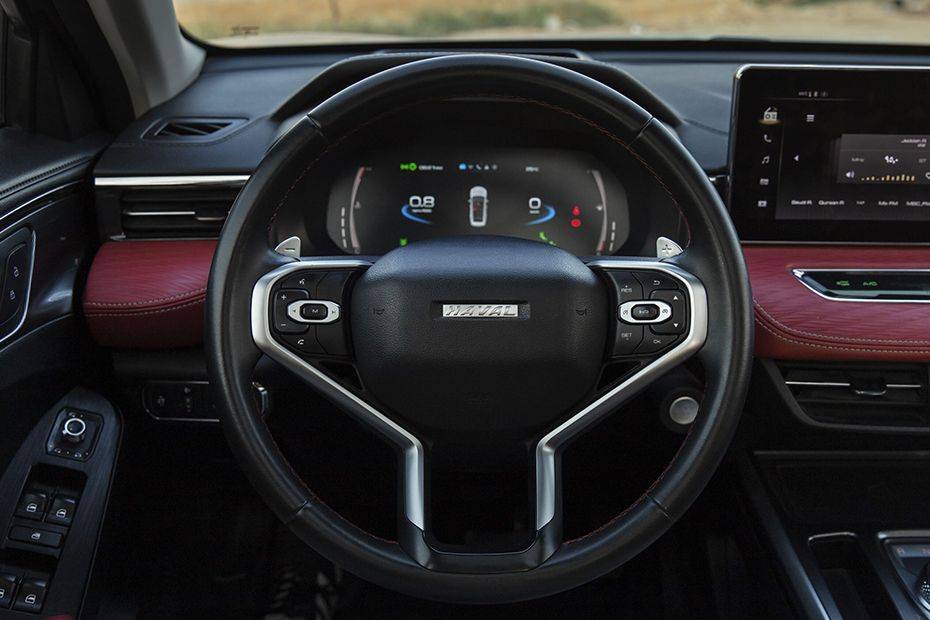
Considering its lower price tag, the Suzuki Fronx is actually well-equipped with modern safety features. What it doesn’t have are the more advanced driver aids that’s offered in the top variant of the Haval Jolion. Let’s see how the two stack up.
|
Safety Systems |
Haval Jolion Premium |
Suzuki Fronx GLX |
|
Adaptive cruise control |
Yes |
No |
|
Forward collision warning |
Yes |
No |
|
Auto-emergency braking |
Yes |
No |
|
Lane-departure warning |
Yes |
No |
|
Lane-change assist |
Yes |
No |
|
Blind-spot detection |
Yes |
No |
|
Traffic jam assist |
Yes |
No |
|
Head-up display |
Yes |
Yes |
|
Auto-dimming IRVM |
Yes |
Yes |
|
Tyre-pressure monitoring |
Yes |
Yes |
|
Surround-view cameras |
Yes |
Yes |
|
Parking sensors |
Yes (rear) |
Yes (rear) |
|
Airbags |
Yes (6) |
Yes (6) |
|
Vehicle stability control |
Yes |
Yes |
|
Hill-hold assist |
Yes |
Yes |
|
ABS + EBD |
Yes |
Yes |
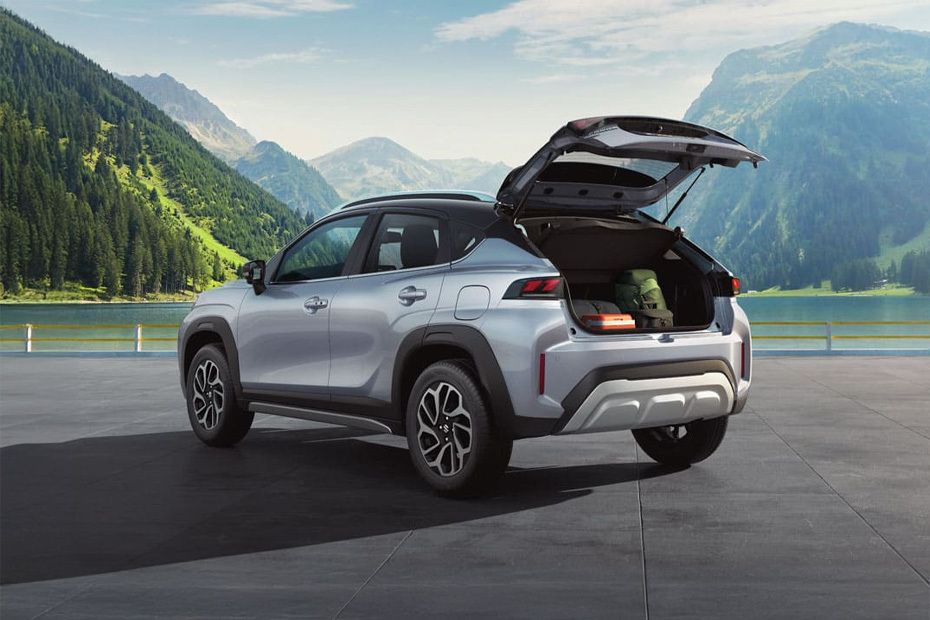
Conclusion
Since these two aren’t direct competitors, picking one over the other isn’t very straightforward. Of course, if your budget is under SAR 75,000, then the Fronx has more standard kit. It’s also more fuel efficient, slightly sportier to drive, and has Japanese reliability to back it. However, given its smaller size, the Fronx’s cabin is neither spacious nor particularly high-tech.
The Haval Jolion offers more space, better ride quality, nicer cabin materials, more power, and looks more mature too. While its long-term reliability isn’t well-documented, Haval KSA’s comprehensive warranty sweetens the deal. The brand announces cashback offers from time-to-time, which makes purchasing even a mid-spec Jolion a worthy proposition.
Haval Car Models
Don't Miss
Automotive News and Reviews
- Latest
- Popular
You might also be interested in
- News
- Featured Stories
Featured Car
- Latest
- Popular
Compare & Recommended
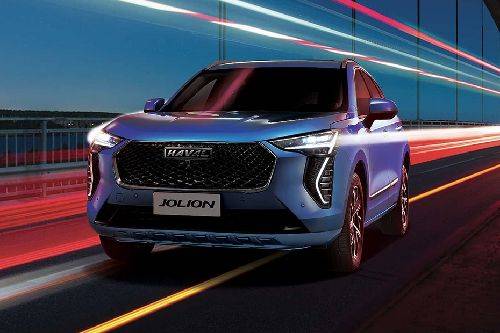
|
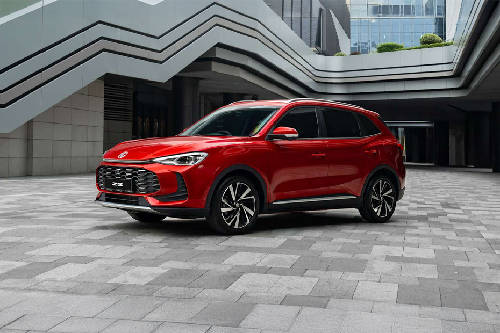
|
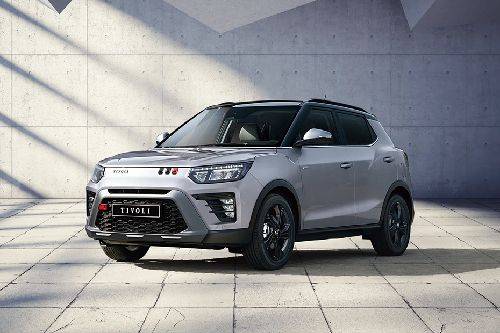
|
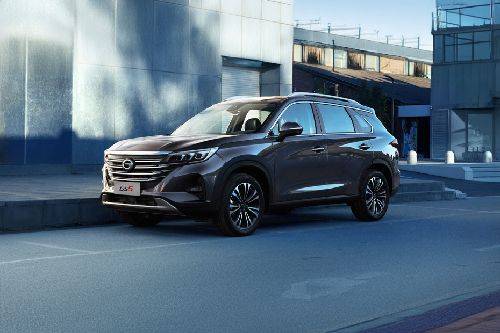
|
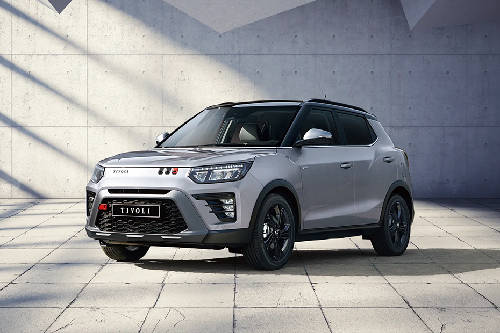
|
|
Transmission Type
Automatic
|
Automatic
|
-
|
Automatic
|
Automatic
|
|
Engine Displacement
1498
|
1498
|
-
|
1495
|
1598
|
|
Power
147Hp
|
168
|
-
|
166Hp@5000Rpm
|
-
|
|
Torque
220Nm
|
-
|
-
|
265Nm@4000-1700rpm
|
-
|
|
|
Trending SUV
- Latest
- Upcoming
- Popular
